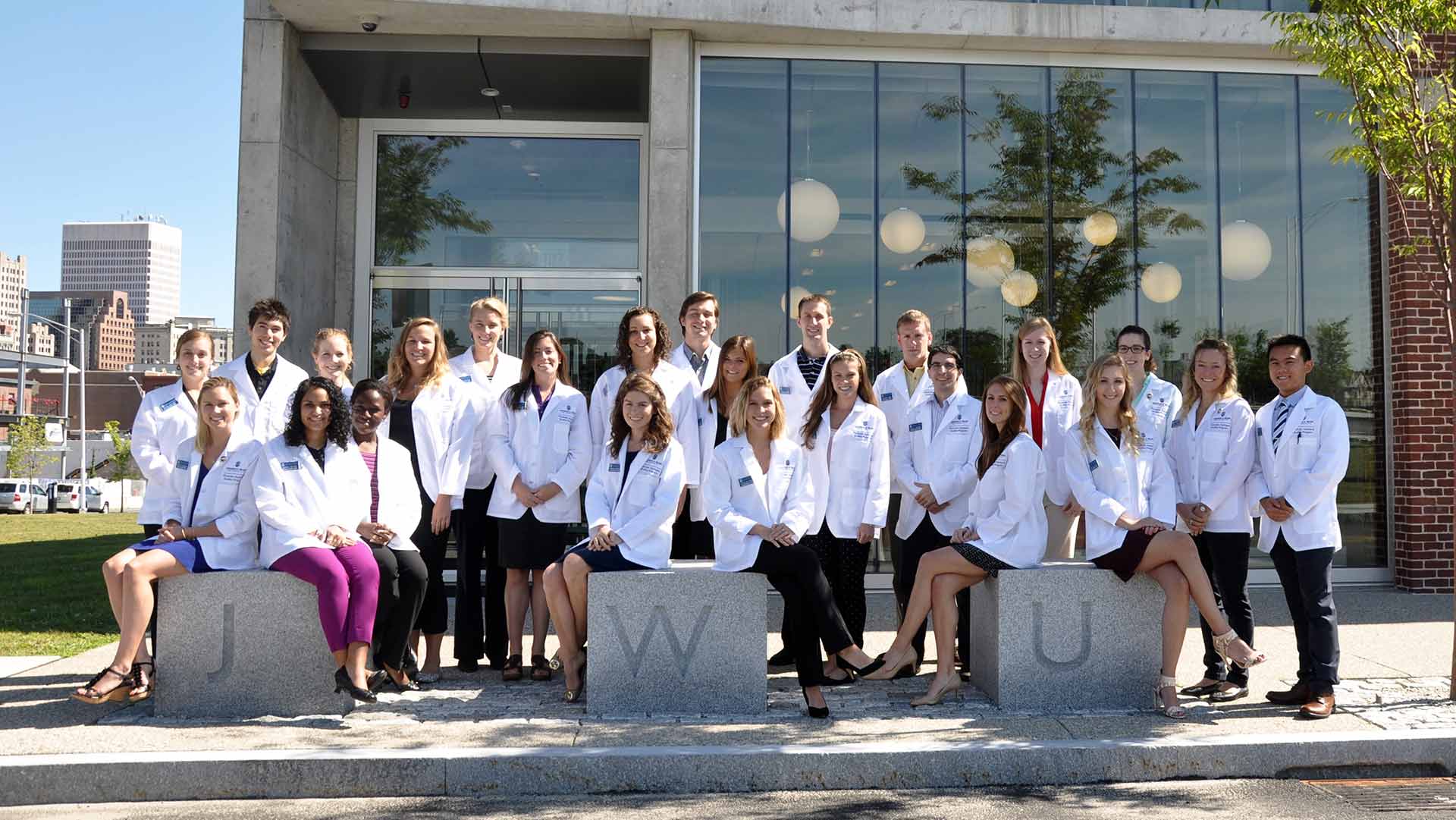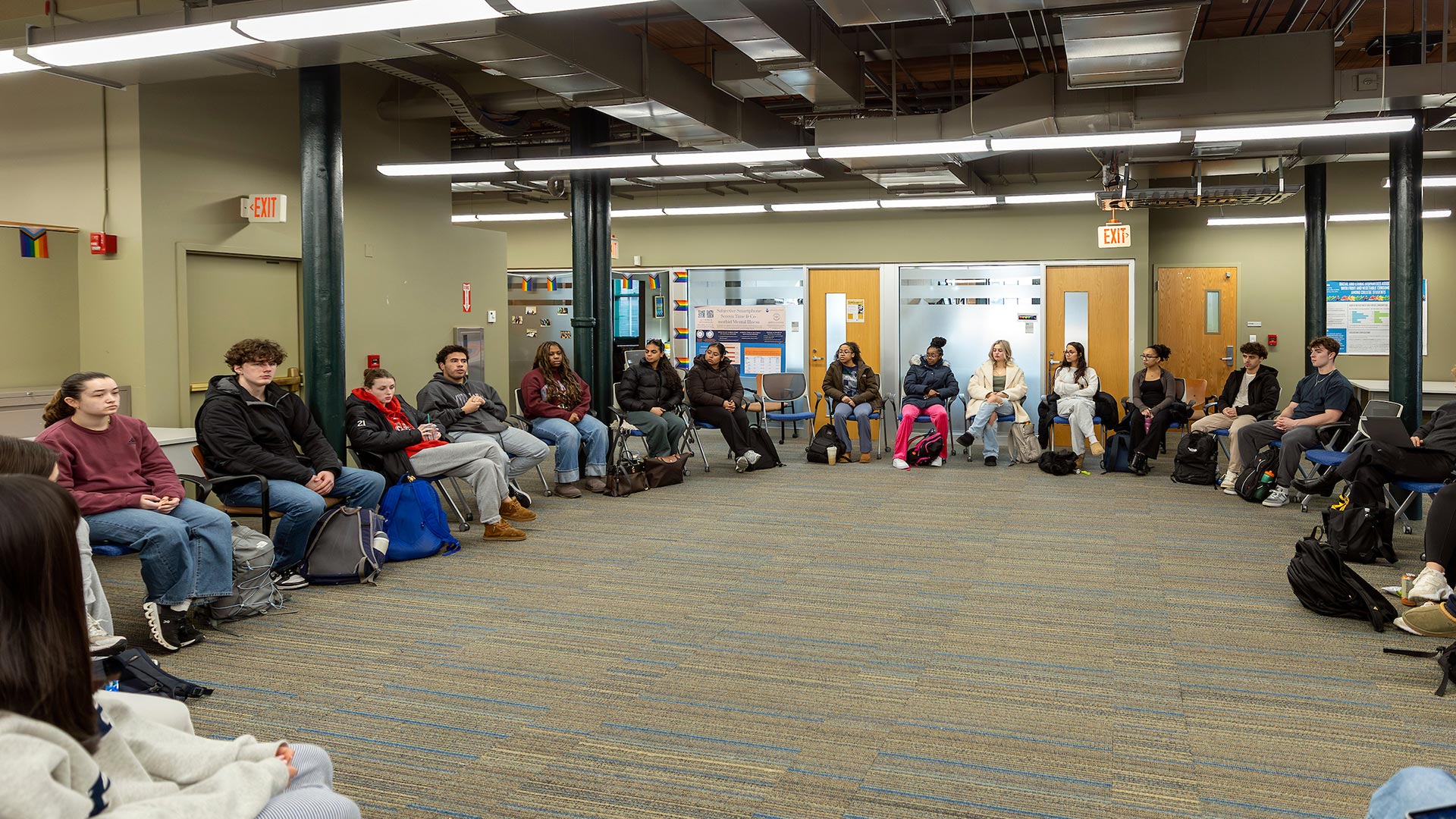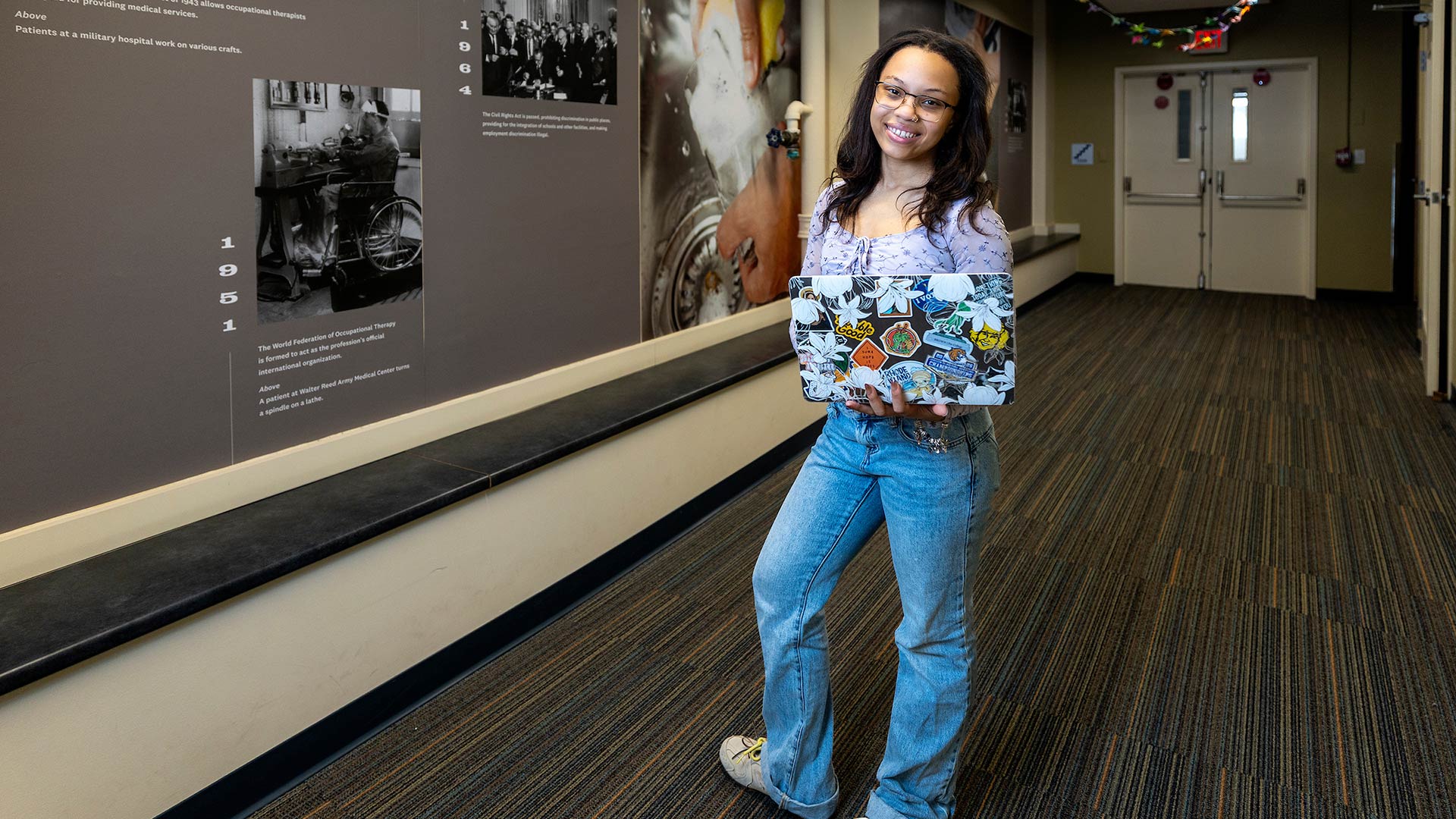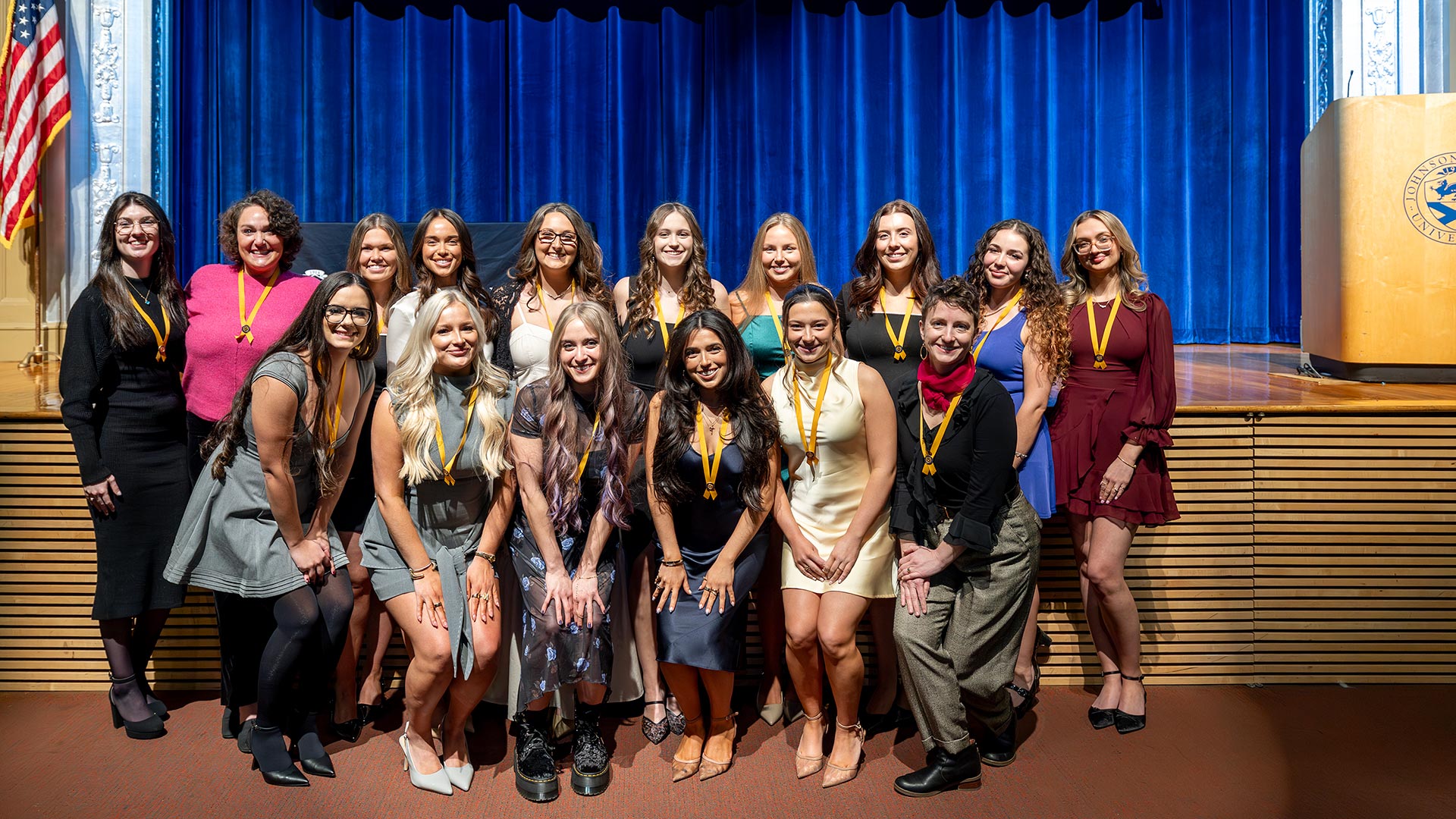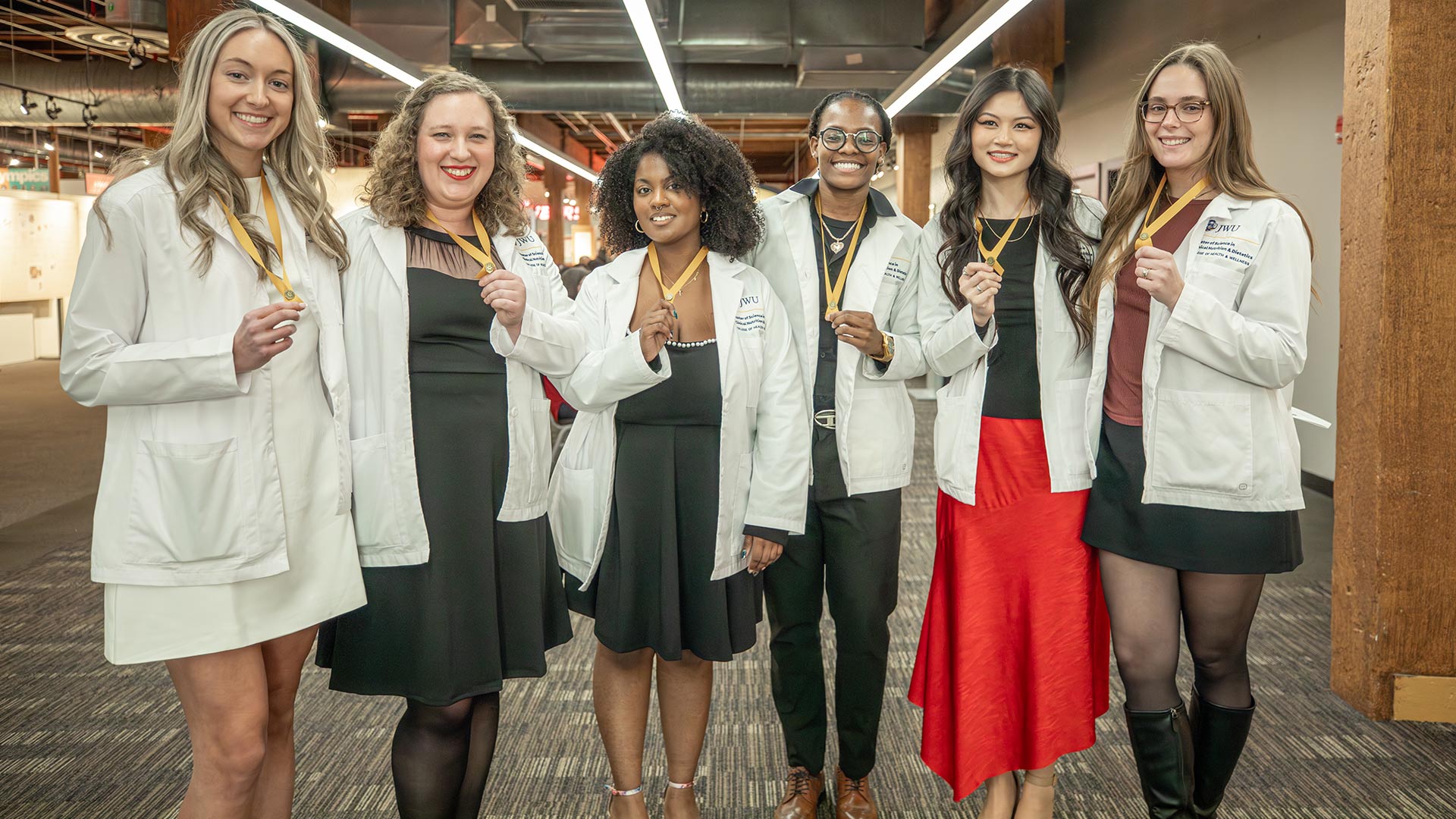From Patient to PA Practitioner: Elizabeth Heisler ’17
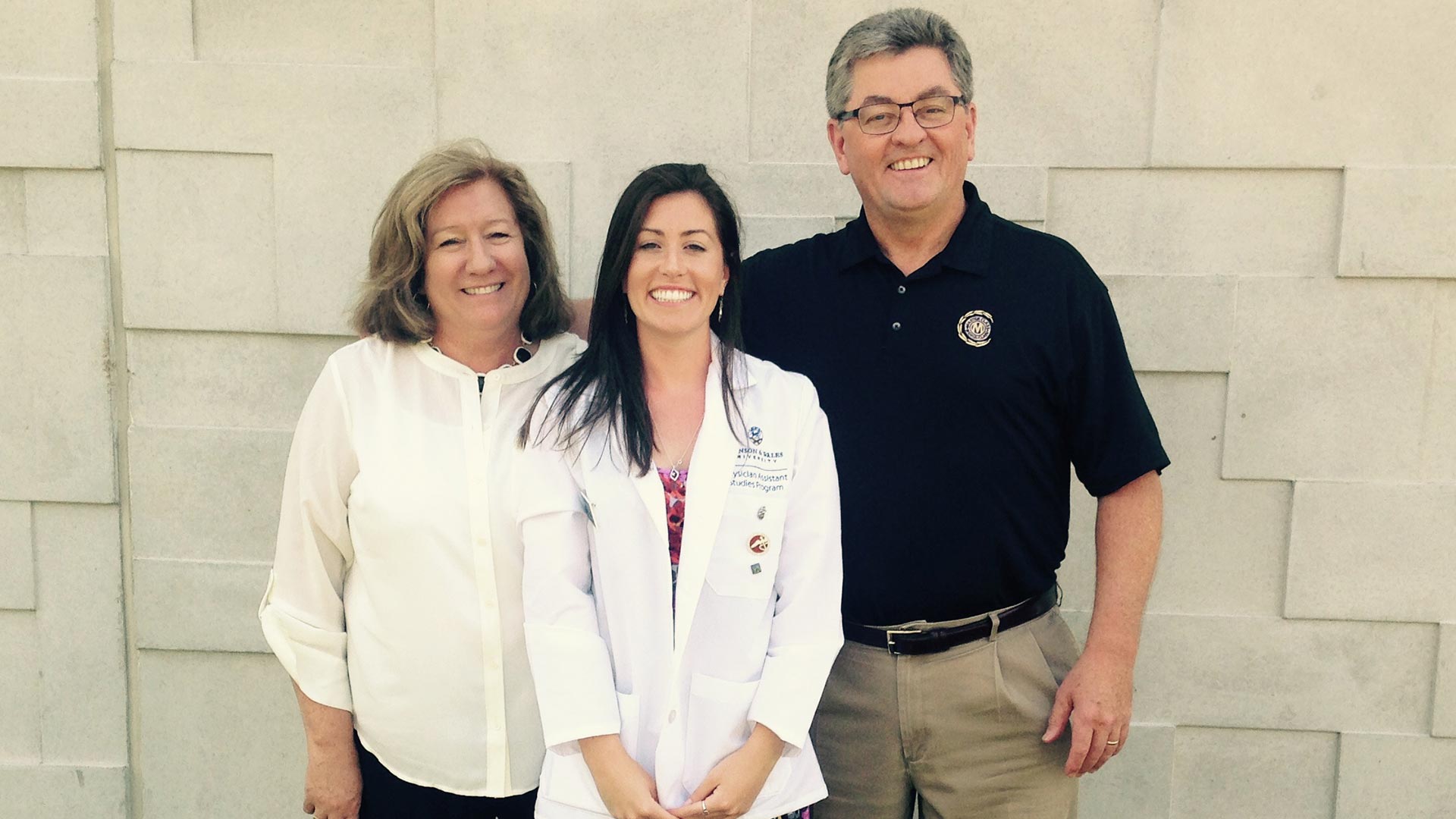
Most people don’t have a defining moment in their lives to point to and say, “This is what changed things for me.” Elizabeth Heisler ’17 has two — one that brought her to her profession as a physician assistant, and one that brought her to Penn Medicine’s Department of Neurosurgery.
As an undergraduate student at Gettysburg College, Heisler knew she wanted to pursue medicine even if her path wasn’t exactly clear. “I didn’t want to be a doctor, though,” she says. “I initially thought I’d get involved in medical research or teaching, so I could forge relationships with people.” Through the Danish Institute for Study Abroad, Heisler enrolled in the Medical Practice and Policy Program, where she learned more about medical research, met with physicians and visited neighboring countries.
"In reflecting on what’s important to me in life, I realized it was having relationships with people."
After graduation, Heisler taught at Duke University as a Genetics & Evolution Lab instructor. It was here that a casual conversation changed her course of action. “My colleague said one day, ‘You know, you’d be a great PA,’” she recalls. “I wasn’t even sure what that entailed, but I looked into it.” Intrigued, Heisler worked toward her EMT certification and logged patient care hours so she could pursue a path as a physician assistant. The more she learned about what the profession entailed, the more she became certain it was tailor-made for her. “In reflecting on what’s important to me in life, I realized it was having relationships with people,” she says. “PAs in particular are in a good position to do this; they have more time with patients and are able to develop relationships.”
The next decision was where to apply. Heisler had spent most of her educational career in her home state of Pennsylvania, but Johnson & Wales’ Physician Assistant program piqued her interest. Although the program was only in its first year at the time she applied, she felt it was something special. “The initial attraction was that it was a small, personalized experience,” she says. She went in for the interview and confirmed what she suspected: this program was different. “They cared about me as a person, not just if I looked good on paper,” she says. “I got the sense that they were truly trying to build a class that would work together with individual strengths and weaknesses.”

Soon enough, Heisler had moved five hours away to Rhode Island where she joined the second cohort of students at JWU’s Center for Physician Assistant Studies. But only a few months later, things started feeling off. “I began having vague symptoms that could have been attributed to anything,” she says. “Lightheaded, dizziness, numbness and tingling.” Soon, however, another worrisome symptom presented itself, causing Heisler to consider that it was something other than general school-related anxiety: head pressure.
"They cared about me as a person, not just if I looked good on paper."
Dr. Victoria Miller, assistant professor with the PA Studies program, took an active interest in Heisler’s symptoms, monitoring her carefully and giving her a sense of comfort as she was so far from her family in Pennsylvania. All of the tests she underwent in Rhode Island — primarily cardiology tests in response to her elevated heart rate — came back normal. So, she carried on, fighting through the bad days and continuing to study and complete her clinicals. Heisler graduated with the rest of her class in 2017 and moved back to Pennsylvania, where she found a job as a hospitalist PA with the PinnacleHealth system in Harrisburg.
Still, Heisler’s symptoms persisted. Her primary doctor ordered an MRI, and that’s when they discovered the rare diagnosis: Chiari Malformation. Chiari Malformation is a condition in which brain tissue extends into a patient’s spinal canal, and, in this case, required brain surgery to halt the progression of symptoms. Recovery would take around six weeks, with a full six months to return back to 100%. Heisler elected to forge ahead rather than waiting for her condition to further deteriorate, despite the natural nerves that come with the prospect of brain surgery.
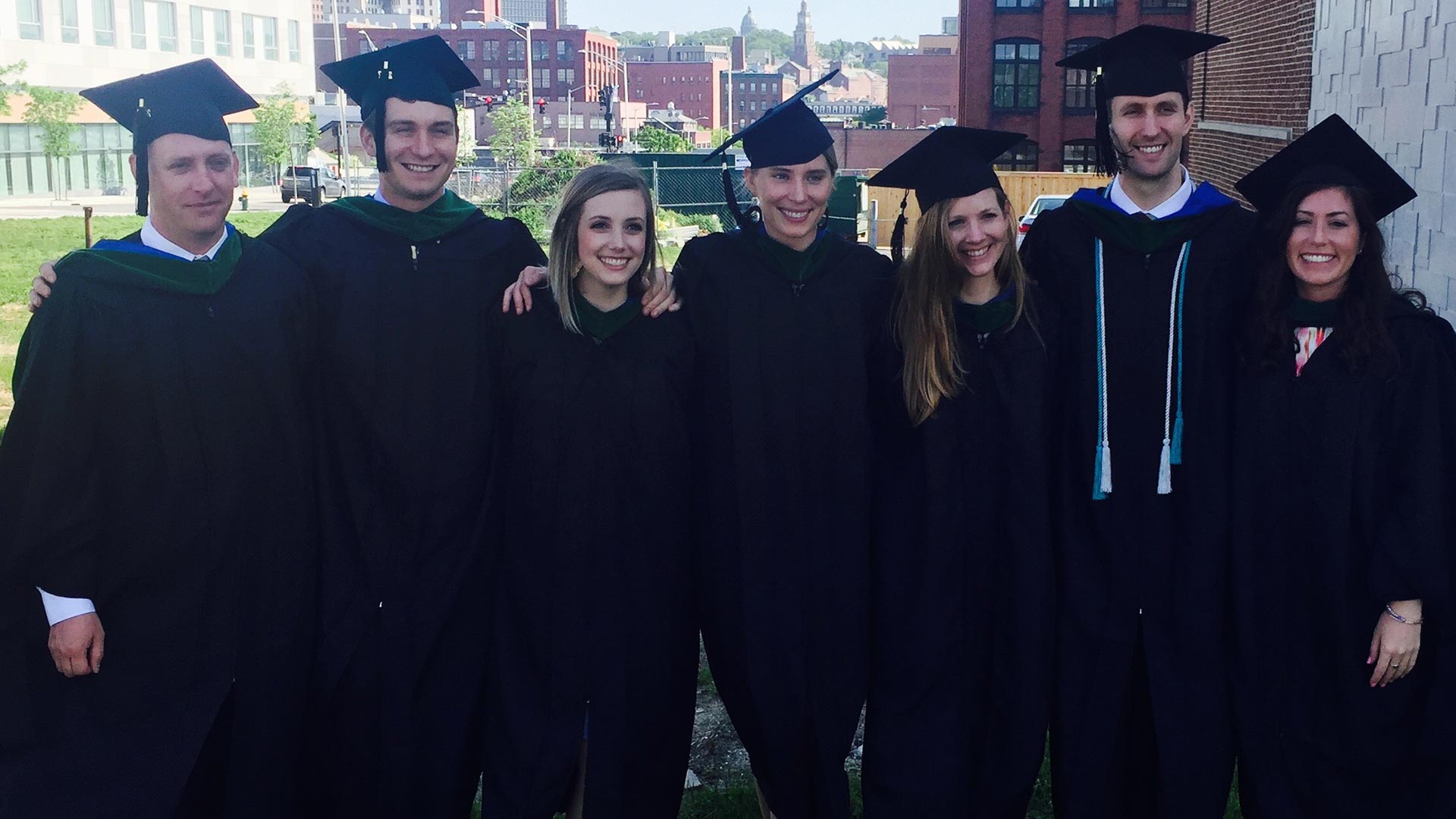
“I was so intimidated to meet the neurosurgeon,” Heisler recalls. “But Dr. Malhotra was so lovely and took the time to explain everything, including all of my options. My family and I were treated like their family – they cared about us.”
Her family agrees. Her father, Bob Heisler, praises the team at Penn Medical and notes that this experience brought to mind another emotional event that occurred much earlier for their family – when his daughter was first born. The Heislers were expecting twins, but, sadly, Elizabeth’s twin died at birth. “She was born at Penn, the exact location where she now works,” Bob notes. “She was born at 3.14 pounds and fought for survival in the hospital for six weeks before we could bring her home.” He recalls his daughter being so tiny that it was difficult to secure her in the car seat on the way home from the hospital. “We always believed that she survived her preemie struggle because of the extra strength and magic she drew from being a twin,” he says. “As new parents experiencing such conflicting emotions of sorrow and joy, we too drew strength from her. So, nearly 30 years later, it is no surprise to us that she still demonstrates that same powerful strength of character and joyful spirit that we have always admired in her.”
"I feel like I have a special power in my back pocket. My experience helps me relate to patients."
Heisler underwent the surgery at Penn Neurosurgery, followed by six weeks of intensive recovery. Throughout the process, apart from the nerves and uncertainty, something continued to nag at her. “I had been interested in neurology previously,” she says. “It was my elective rotation at JWU and I minored in neurology at Gettysburg. But this experience rekindled that interest.”
So, she asked about job openings with the team that treated her – and as luck would have it, there was an opportunity. She interviewed with the team while still in recovery from surgery, and landed the job. “There are so many opportunities within the PA profession,” Heisler says. “You’re not tied to one specialty like an MD. You get a broad medical training and are able to develop throughout your profession.”
Now, she is working with neurosurgery patients at Penn Medicine, primarily with those who are being treated for brain cancer. “Working for the team that treated me is absolutely amazing,” Heisler says. “I feel like I have a special power in my back pocket. My experience helps me relate to patients. It reminds me to take the time to counsel them and tell them about recovery.”
This “special power” is something instilled in all PA students at JWU. As soon as students walk through the door of the Center for Physician Assistant Studies, they’re greeted with the School’s mission statement: To educate students to become collaborative practitioners with the respect, empathy and trust inherent to patient-centered humanistic health care. Heisler already exhibited these qualities, as her colleagues noted, but now they are layered with experience.
“Elizabeth combines all that is best in medicine: extraordinary intelligence, kindness and compassion, and a quest for personal and professional excellence,” Miller says. “She is strong and gracious, representing all that the JWU PA Program strives to achieve.”
"She is strong and gracious, representing all that the JWU PA Program strives to achieve."
Although her circumstances differed from those of the patients she sees daily, Heisler is able to draw connections to them. “I remember to go back to the basics of taking care of humans,” she says. “What practitioners think are important things are often much different than what patients think are important. They want to know when they can blow dry their hair; when they can go for a run; what it’s going to be like when they shower.”
A chance conversation with a colleague brought Heisler to the PA profession, and a rare disorder rekindled an old interest and brought her to her current career. “I never dreamed I could have this career,” she says. “Thank you to JWU for treating us like people, helping us try to achieve our goals, and for building the clinical rotations we wanted to have. It really felt like a little family.”
